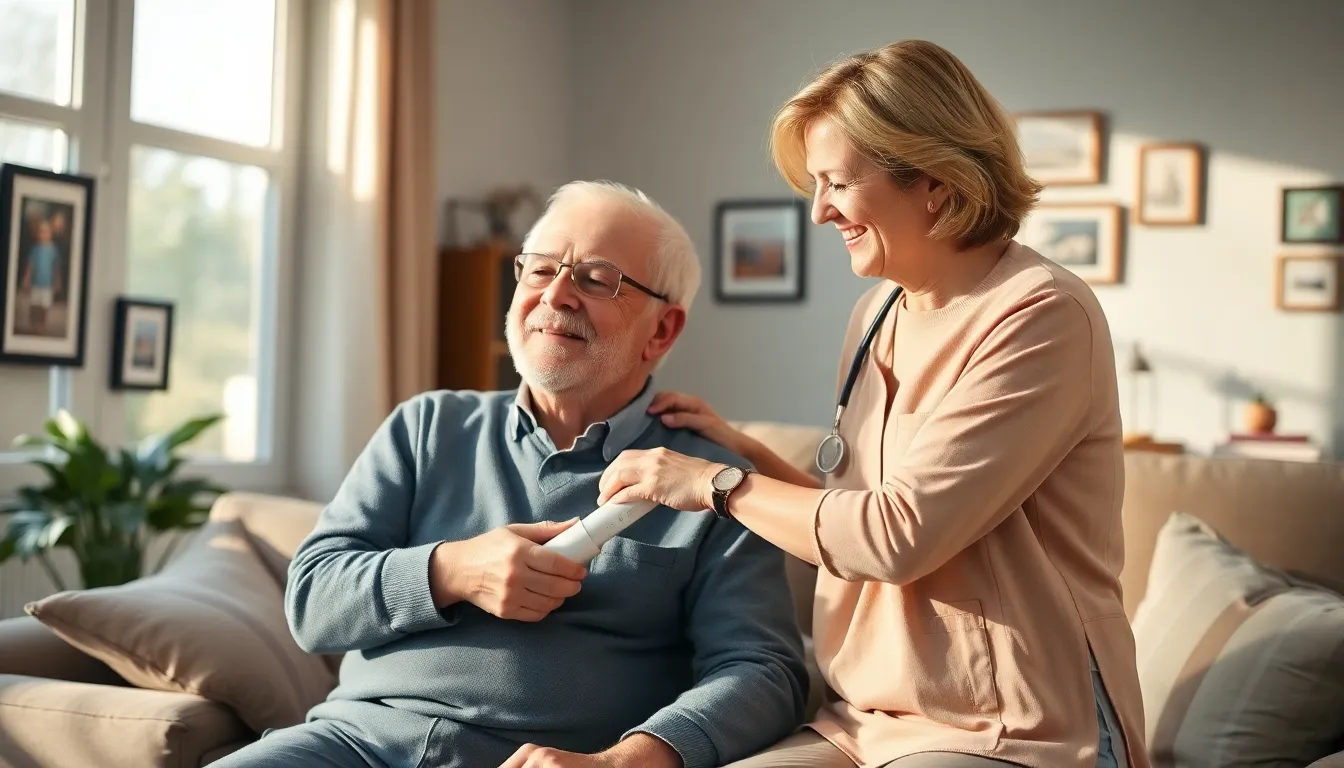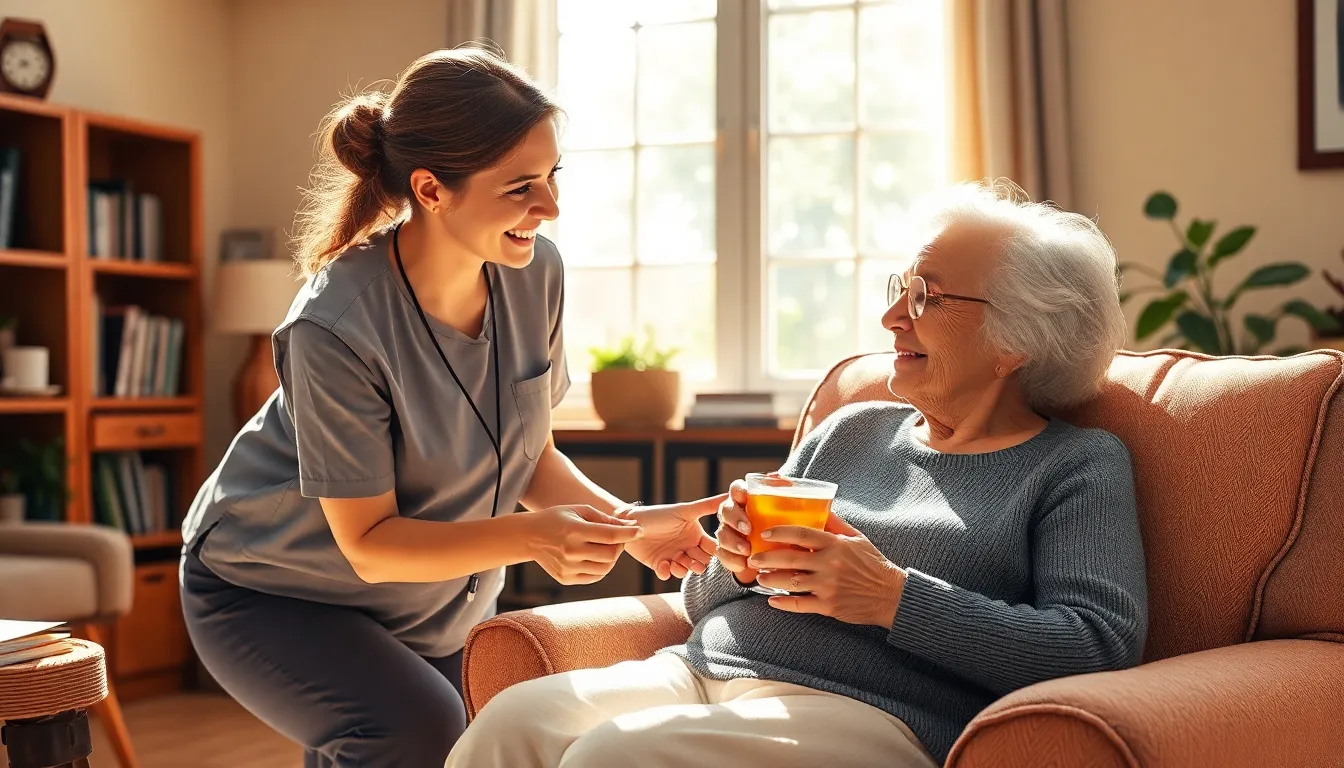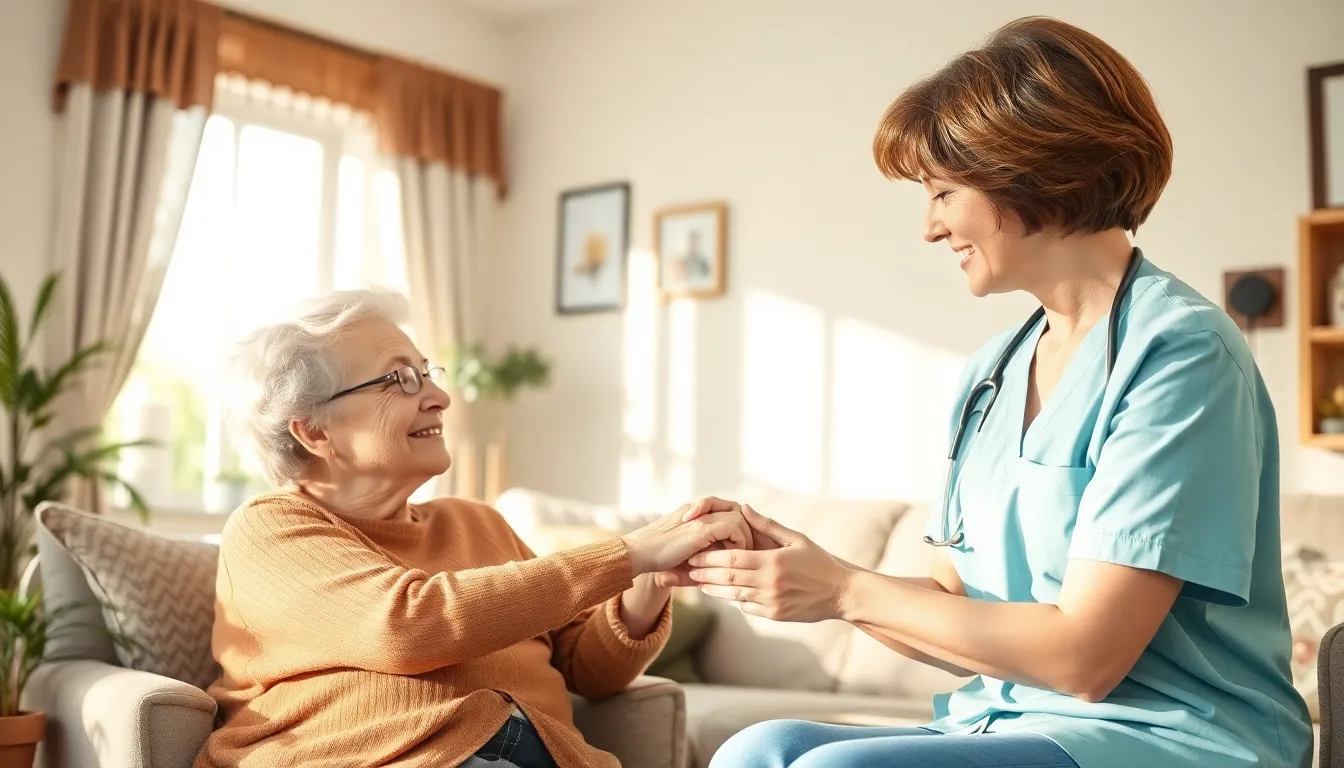Table of Contents
ToggleImagine a world where you can binge-watch your favorite shows without a care in the world, all while knowing someone’s got your back 24/7. That’s the magic of around-the-clock home health care. It’s like having a superhero on standby, ready to swoop in with a cup of tea, a listening ear, or even a helping hand when life gets a little too chaotic.
In today’s fast-paced world, home health care isn’t just a luxury; it’s a lifeline. Whether it’s for aging parents or recovering loved ones, this service ensures that help is always just a heartbeat away. Say goodbye to the stress of juggling responsibilities and hello to peace of mind. With dedicated professionals by their side, patients can enjoy the comfort of home while receiving the care they truly deserve.
What Is Around The Clock Home Health Care?
Around the clock home health care offers continuous support for individuals in their residences. This service provides essential medical and non-medical assistance, making it ideal for those requiring constant attention due to age or health conditions.
Definition and Overview
Around the clock home health care involves caregivers attending to patients 24 hours a day, seven days a week. Services include personal care, medication management, and companionship. Patients benefit from individualized care plans tailored to specific needs, promoting independence and enhancing daily living. Many families opt for this service to ensure loved ones receive quality care in a familiar environment.
Key Features
Key features of around the clock home health care encompass various services that cater to patients’ diverse needs. Trained professionals deliver medical assistance, including wound care and monitoring vital signs. Additionally, personal care services help with daily tasks, such as bathing and dressing. Companionship is also a vital aspect, providing emotional support and reducing feelings of isolation. Flexibility in scheduling allows caregivers to adjust their hours based on patients’ requirements, ensuring peace of mind for families.
Benefits of Around The Clock Home Health Care


Around-the-clock home health care significantly enhances the overall quality of life for patients. Constant support helps individuals feel more secure in their own homes, allowing them to maintain familiar routines. Continuous care minimizes the risk of accidents or health complications, promoting safety and well-being. Emotional support plays a crucial role, as caregivers provide companionship, reducing feelings of isolation. Engaging in conversations and activities with caregivers fosters social interaction, benefiting mental health.
Improved Quality of Life
Improved mobility remains a key benefit of around-the-clock home health care. Patients receive assistance with daily activities, such as bathing, dressing, and meal preparation. Enhanced accessibility to healthcare services also contributes positively, ensuring timely responses to medical needs. Cognitive engagement through games or conversation keeps minds sharp and active. Family members gain peace of mind, knowing that their loved ones enjoy a higher quality of life while remaining in the comfort of home.
Personalized Care
Personalized care plans ensure that every individual’s specific needs are met in around-the-clock home health care. Caregivers assess each patient’s medical history and preferences to develop tailored strategies. Individualized attention allows caregivers to focus on unique challenges, whether physical or emotional. Regular evaluations enable adjustments in care as needs evolve, promoting effective treatment. Families benefit from open communication with caregivers, keeping them informed and engaged in the care process.
Services Offered in Around The Clock Home Health Care
Around-the-clock home health care provides a range of essential services tailored to meet individual needs. These services enhance both physical health and emotional well-being.
Medical Care
Medical care comprises essential services delivered by trained professionals. Caregivers administer medications, monitor vital signs, and provide wound care. Regular assessments ensure that caregivers adjust plans as health conditions change. Patients benefit from assistance with managing chronic conditions, like diabetes or hypertension. Communication with healthcare providers enhances coordination and facilitates timely interventions.
Non-Medical Support
Non-medical support plays a crucial role in enhancing daily living. Personal care services include assistance with bathing, dressing, and grooming. Companionship fosters social interaction, reducing feelings of isolation. Light housekeeping, meal preparation, and laundry services help maintain a clean and comfortable environment. Flexible scheduling accommodates patient preferences, ensuring caregivers are available when needed most. Families can enjoy peace of mind, knowing their loved ones receive compassionate support every hour of the day.
Choosing the Right Provider
Selecting the right provider for around-the-clock home health care requires careful consideration. Thorough evaluation ensures the best fit for individual needs.
Factors to Consider
Evaluate qualifications and credentials of caregivers. Verify training and certifications to guarantee expertise in essential medical and non-medical tasks. Assess flexibility in scheduling; finding a provider who accommodates specific timelines enhances care quality. Examine reviews and testimonials to learn about experiences from other families. Analyze the scope of services offered. Comprehensive programs address diverse needs, from medical assistance to companionship. Cost transparency matters; obtaining clear pricing structures allows for informed decision-making.
Questions to Ask
Inquire about caregiver-to-patient ratios. A higher ratio often indicates more personalized attention. Ask how often care plans are reviewed and updated. Regular assessments ensure services adapt to changing health conditions. Confirm the availability of specialized care if needed. Specific medical conditions may require additional expertise. Discuss emergency protocols for unexpected situations. Understanding response protocols provides peace of mind. Lastly, evaluate communication practices. Regular updates from caregivers keep family members informed about their loved ones’ well-being.




